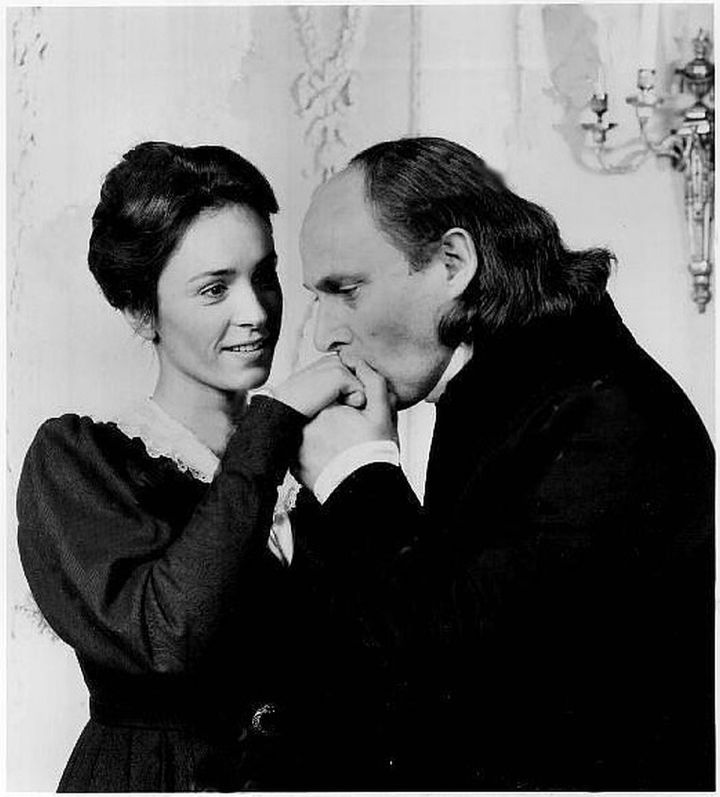Now when I think about it, including Middlemarch in my selection of 11 books I was going to read during October *might* have been slightly silly. You see, when an ebook is all you’ve got, you tend to slightly disregard the size of it. For those like me who do not know what kind of book Middlemarch is….. Well, it’s…

And when I say big, I really mean…

Yep, it’s a whopping beast of 904 pages. Normally, that’s not any problem with me at all, heck, I LOVE big books!! Especially if they’re in print. But when you’re planning to read 11 books a month, you might not want to choose monsters of quite this size.
But I think we’ve already established that I’ve blundered with that one.

But everything is absolutely fine! And not the burning dog meme kind of fine. Fine because I’ve relinquished the goal of even going through with this ridiculous plan, and I am secretly hoping that the world, my cat and my mother will still love me same as they did back when I decided to it up.

So instead of the 11, I chose *some* of the 11. One of the lucky ones was Middlemarch by George Elliot, which I’ve wanted to read for quite a long time, and luck had it that this month one of my groups at Goodreads (known as the Victorians! group) was conveniently reading it. Thankfully, they’re reading it in parts, so even if I am late, I’m not terribly late.
Why Middlemarch? Well, I LOOOOOOVE Victorian books. I so totally adore them. I mean, come on – the dresses, the drama, the appropriateness, the touchiness! EVERYTHING is just so perfect about Victorian books that I might as well even ignore the slightly slower pace or the abundance of weird words. I’m not native, mind you. I don’t even mind. So you shouldn’t either. They’re just so FABULOUS.

So what about Middlemarch? Well, first of all let’s start with the author. An interesting lady she was! Back in the days of judgement for wearing a skirt half an inch too short so your ankles might show, this little lady gave up religion, left her father, worked unpaid as a writer and translator for the love of the job, AND lived in a free union with a man who couldn’t divorce! You go girl. (For those of you who don’t know what a free union is, well, it was scandalous at the time. Now it’s what most of us would be called doing).
So, finding all of this out about the writer, I’m both surprised and not surprised about her writing. She is so hard to crack sometimes. Most of the time it seems like she’s being really sarcastic about people, especially religious people, but then sometimes it’s as if she’s serious. Bridging the gap between then and now also makes it harder to understand. But that is partly what I love about Victorian books. They don’t pretend to be different. They just are.

You have to admire the language though. Such intricate, lovely sentences. I wonder, would most of you enjoy this kind of writing, or be fatigued by it?
Now to the characters. I’m only done with part 1, but there have already been several delightful characters. At the beginning, the book centers around Miss Brooke – an angelic, extremely religious and studious creature, yet also quite obsessed. A really manic personality, throwing herself headfirst into what she thinks is right and true. However, as thoughtful as she may be, she remains utterly blind to actual events of the outside world (for example, her suitor, which she seems to think wants to marry her sister instead).
Dorothea is so young and idealistic that she mistakes her yearning for knowledge and wisdom with love. What she craves is a sense of purpose and she falsely hopes to find it in the right kind of marriage. Unfortunately, at the time, being a woman dictated pretty much no other means of attaining most forms of knowledge other than marrying a learned man and hoping to receive a part of his wisdom as a sort of wedding gift.

Other than Dorothea, I have found another quite lovely character in this first part of the book. It’s Mrs Cadwallader! What a wonderful character. Colorful, sharp and very contrasting. She has to have her way with everything, and god forbid things will not go the way she planned them to – be it somebody else’s lives even – all the world should just tumble over to right itself and fit the picture.
Mrs Cadwallader is a sort of character which meddles with everyone else lives in this book, I feel. I think I’m going to love her. When she fails to set one marriage up, she jumps straight into a new plot. Will not keep that woman down.
So. As I’ve only read a small part of the book, I can’t comment anymore on it, but so far it seems that this is going to be a pleasant read. And it won’t concentrate on just one or two characters. Although I have no idea what might happen, because the author keeps hinting at things that might develop in the future. Can’t help but wonder how these people’s lives might still intertwine.
I promise a more interesting post next time too. With an actual topic!
I’m Evelina and I blog about books that made an impression on me. I love middle grade, women’s, scifi and some literary too.
